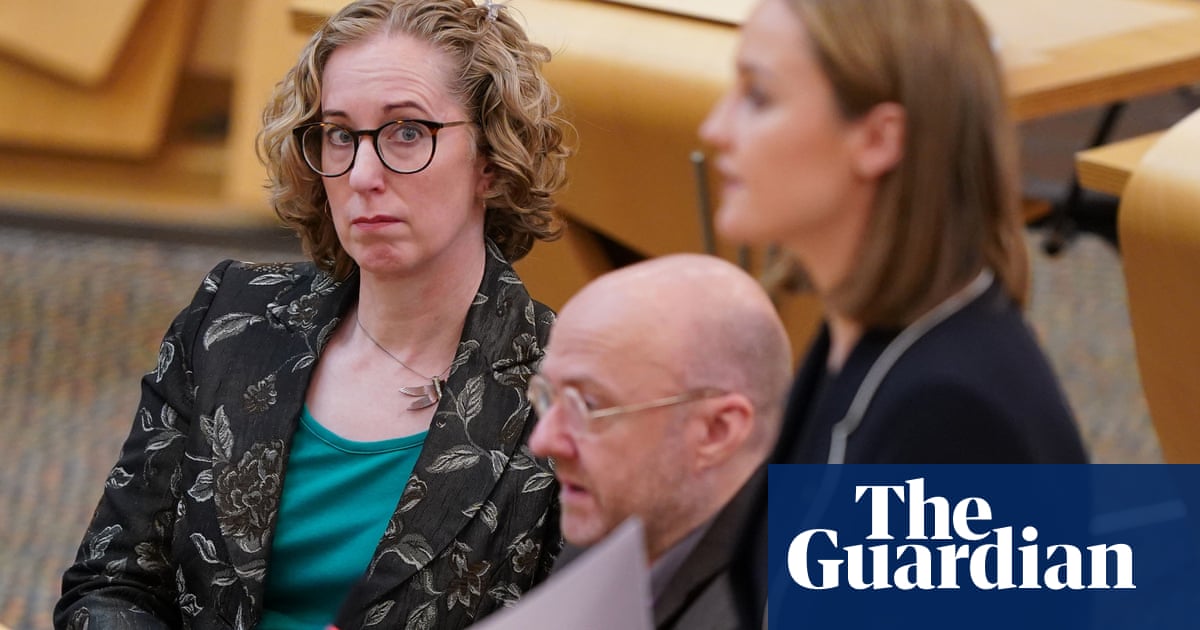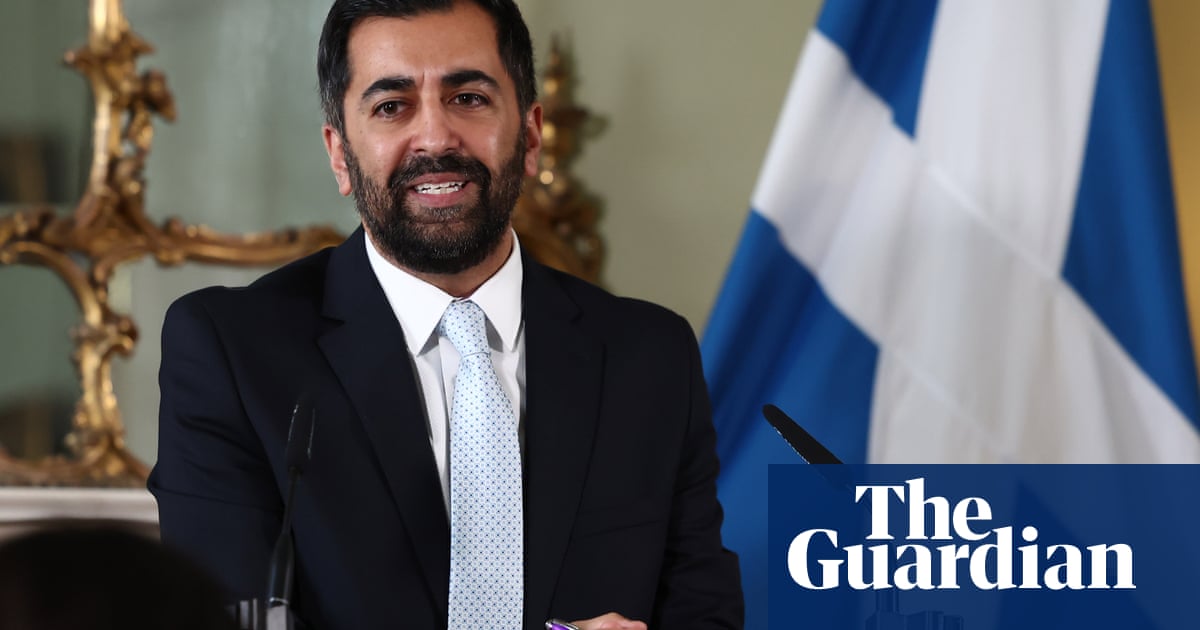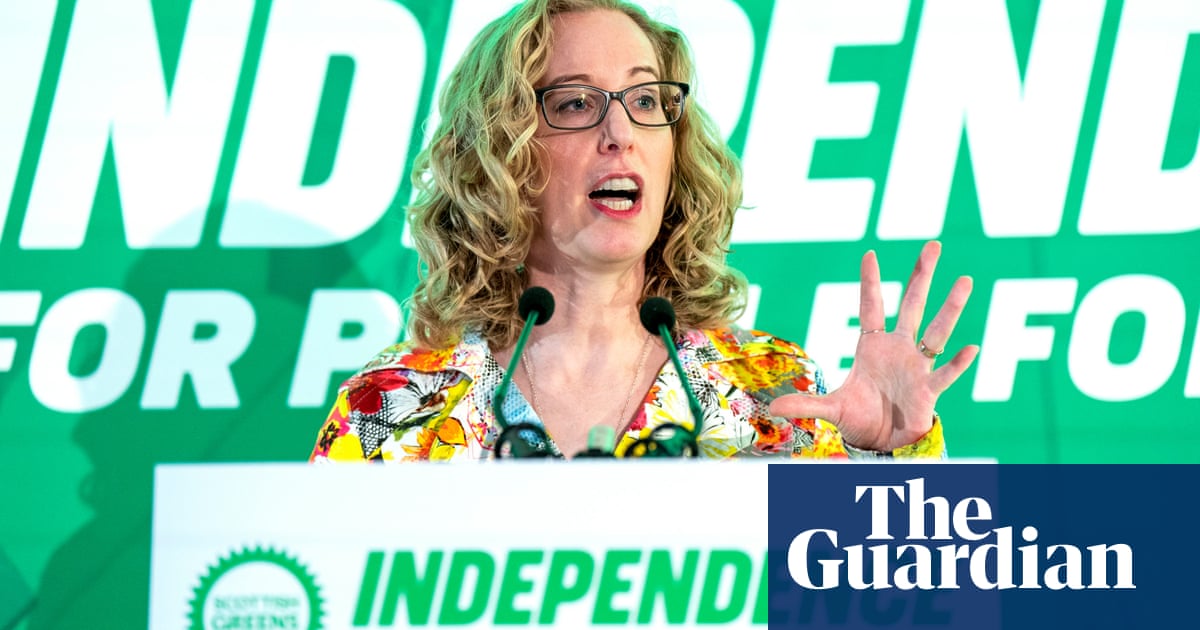
The Scottish National party and the Scottish Greens have confirmed a power-sharing agreement, ushering the Green party into government for the first time in the UK in a change designed to bolster the case for independence.
Nicola Sturgeon said the agreement would make it “impossible” for the UK government to refuse a second independence referendum but environmental campaigners expressed disappointment that the text fell short of calling for an immediate end to oil and gas exploration.
The SNP leader said the agreement was based on a “spirit of cooperation and consensus building” that “recognises that business as usual is not good enough” and would ultimately deliver a “greener, fairer independent Scotland”.
Scottish Green co-leader Patrick Harvie welcomed the “historic moment”, confirming the deal would “put two green ministers into the heart of government advocating for climate” and pledging a referendum by the end of 2023, as the deal cemented a pro-independence majority at Holyrood.
Two Scottish Green MSPs – expected to be the co-leaders, Harvie and Lorna Slater – will become ministers and will be bound by the principle of collective responsibility under the long-awaited deal, which is not a traditional coalition and gives them opt-outs for policies they cannot agree on, for example green ports and aviation.
At a briefing on Friday, both parties were pressed on continued oil and gas exploration, which the Scottish Green manifesto pledged to prohibit. The new deal does not go so far, but promises a review of how much more oil and gas extraction is consistent with the Paris Agreement goals, a £500m Just Transition fund targeting the north-east, and a massive expansion of onshore wind capacity.
Sturgeon has recently faced criticism from climate campaigners over her stance on the proposed Cambo oilfield off Shetland. Under pressure to call for a complete cessation of North Sea drilling, last week she wrote to Boris Johnson urging him to convene a meeting of the UK’s four governments to agree a new oil strategy that prioritised combating the climate crisis.
Pressed on Cambo, Sturgeon said: “I think there are significant questions about whether, in the face of the code red climate emergency, we should be continuing with unlimited fossil fuel extraction,” adding that UK government should “reassess” licences to drill for oil against new climate tests.
Slater praised the first minister for making a “significant” movement in her approach to oil and gas, but added that – while her party are unequivocally against Cambo – the Scottish government’s hands are tied because those powers remain reserved.
The specifics of the deal were published after the plans were given unanimous approval by the Scottish cabinet, and mark the first time the SNP has shared power at Holyrood. The document will be put before the party’s national executive committee on Saturday, although rank and file members will not have an opportunity to approve it. In contrast, Scottish Green members will vote on the deal at a meeting on 28 August.
Friends of the Earth Scotland director Dr Richard Dixon said that, on balance, the deal should lead to stronger climate action. “When two parties work together there has to be compromise … The question for the environment is whether this agreement pushes the SNP sufficiently further than they would already have gone for it to be worth the Greens having to make their own compromises. On the basis of this draft, the answer is likely yes with strong extra action on areas that make a difference to climate change and a review of oil and gas promised.”
He welcomed proposed investment in active travel and public transport, extra action on changing heating from fossil fuels to renewables and new targets for nature restoration, but added: “There is a disappointing compromise on CCS [carbon capture and storage] and hydrogen from fossil fuels. The Greens will need to use the caveat that these ‘cannot be used to justify unsustainable levels of fossil fuel extraction’ to argue for the right priorities for hydrogen from renewables and push the case against hydrogen from gas.”
Scottish conservative leader Douglas Ross dismissed the pact as a “nationalist coalition of chaos focused on splitting up the country and dividing Scotland with another bitter referendum” while Scottish Labour leader Anas Sarwar described it as “a disaster for Scotland”.
The unique arrangement is understood to have proved challenging for civil servants who drew up a new set of rules governing the obligations and capacity for dissent for both sides. Under the terms of the arrangement, Green MSPs would support the Scottish government on confidence votes, as well as in annual budgets if there is “appropriate funding for the shared policy programme”.
The deal allows the Scottish government to present strong pro-climate credentials before November’s crucial Cop26 conference in Glasgow.
The agreement formalises the pro-independence arithmetic at Holyrood after the SNP won 64 out of Holyrood’s 129 seats at May’s elections, leaving them one short of an overall majority. The addition of seven Scottish Green seats will allow the Scottish government to comfortably pass legislation, including a new independence referendum bill.












